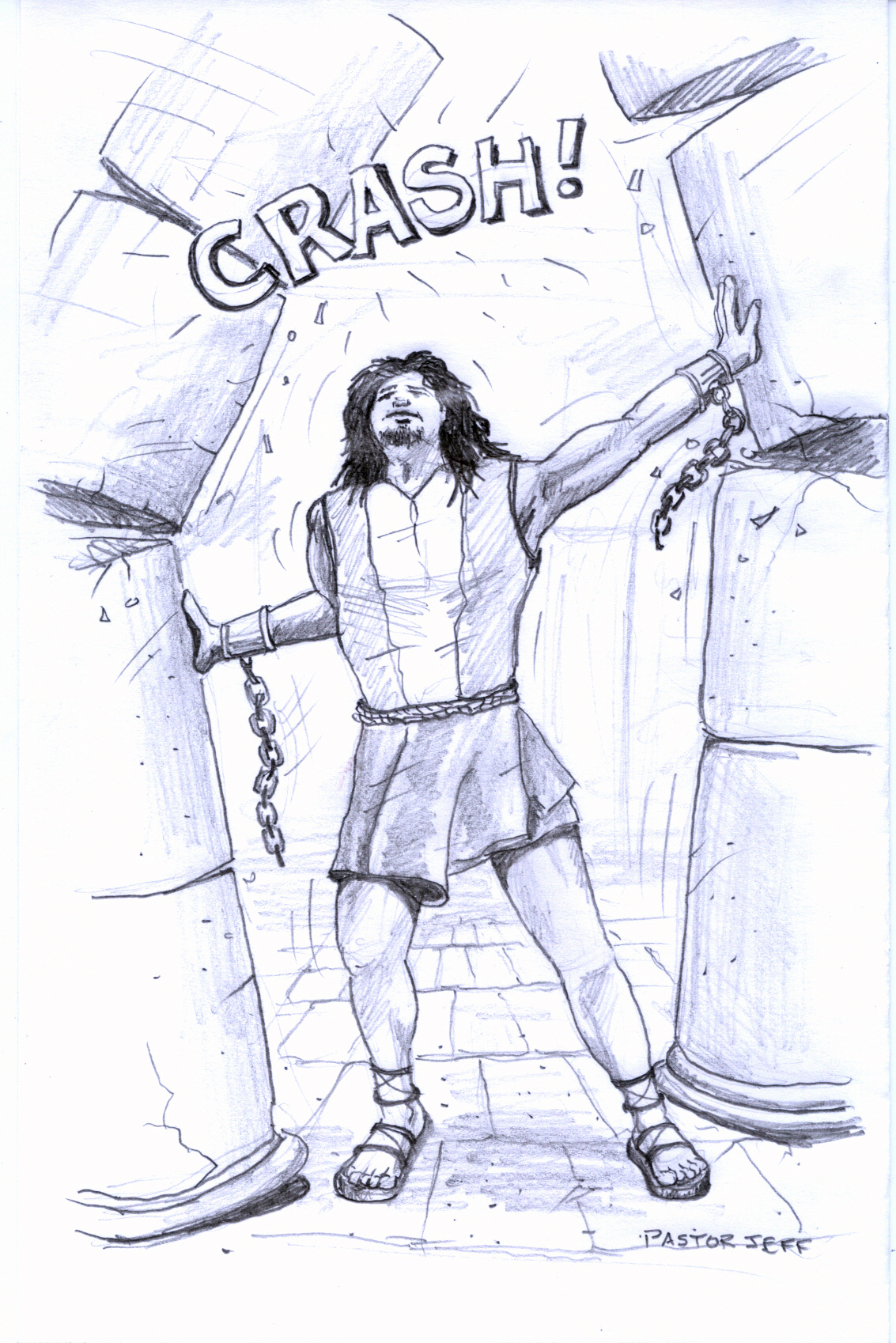Lessons from Samson’s life
 Samson was one of the most “wheels off” characters in the Bible. Read his story in Judges 13-16 and you’ll see: he was mostly out of control. In many ways he epitomizes a kind of rugged “man’s man” in our culture today (brut strength, a womanizer, independent, even violent). But in the end his story is tragic. He ends up stripped of his God-given abilities, blind, and suicidal. Such is the destructive bent of one who disregards God’s commands.
Samson was one of the most “wheels off” characters in the Bible. Read his story in Judges 13-16 and you’ll see: he was mostly out of control. In many ways he epitomizes a kind of rugged “man’s man” in our culture today (brut strength, a womanizer, independent, even violent). But in the end his story is tragic. He ends up stripped of his God-given abilities, blind, and suicidal. Such is the destructive bent of one who disregards God’s commands.
In the end Samson does, however, end up in the “Hall of Faith” in Hebrews 11. How could it be? Behind this unlikely hero is a God who is faithful and can use us in spite of our sins. Consider a few lessons from Samson’s life:
1. The true measure of a man is not found in his physical strength or appearance. Samson seems to be a man in search of his identity. Even his strength and ability to overpower (both men and women) did not bring any sense of peace to Samson’s life. Our worth is found in Christ and what He’s already said about us and what He’s already done for us.
2. Often your greatest strength can be the source of your greatest weakness. It is possible to squander the very gifts God has given you to live out his purposes for your life. Failure to give those gifts fully over to God will carry a high price tag. Samson’s strength became his demise. He did not use his God-given strength for God alone. He used it to leverage his own desires.
3. Strength in one area of your life does not make up for weakness in another. You can be “successful” in worldly ways and not in godly ways. In what areas of your life are you strong (and does it really matter that you are strong in those areas?) For instance, I often say, nothing makes up for failure in the home. You see, you can be “successful” in certain areas of your life and still fail where it matters most.
4. Acknowledging your bent toward certain sin is the beginning of your battle to overcome it. Admit where most apt to fall. Name it; say it out loud and tell others. Sin unconfessed is sin revisited. Sin revisited is sin that is self-destructive.
5. There are always consequences for disobedience. Samson’s story goes from sad to tragic when Samson does not learn from his mistakes. He repeats the same bad mistake of entering into a relationship with another bad woman. Word of warning to all you students/singles- Guys: Watch out for Delilahs. Girls: Watch out for guys like Samson. You must guard your heart!
This verse expresses the lessons of Samson’s life: “Do not be deceived: God cannot be mocked. A man reaps what he sows.” Galatians 6:7
6. God can restore your life for His purposes even after you fall. Though you may face the consequences of your sin for the rest of your life, God can restore you. Though some people will never forget, God forgives. You may not enter back into a particular place or position but God will still accomplished His purposes through your life. Samson ended up in the “Hall of Faith” because he continued to believe God- even in the end. Sometimes it seems an undying faith in God trumps even our failures.


